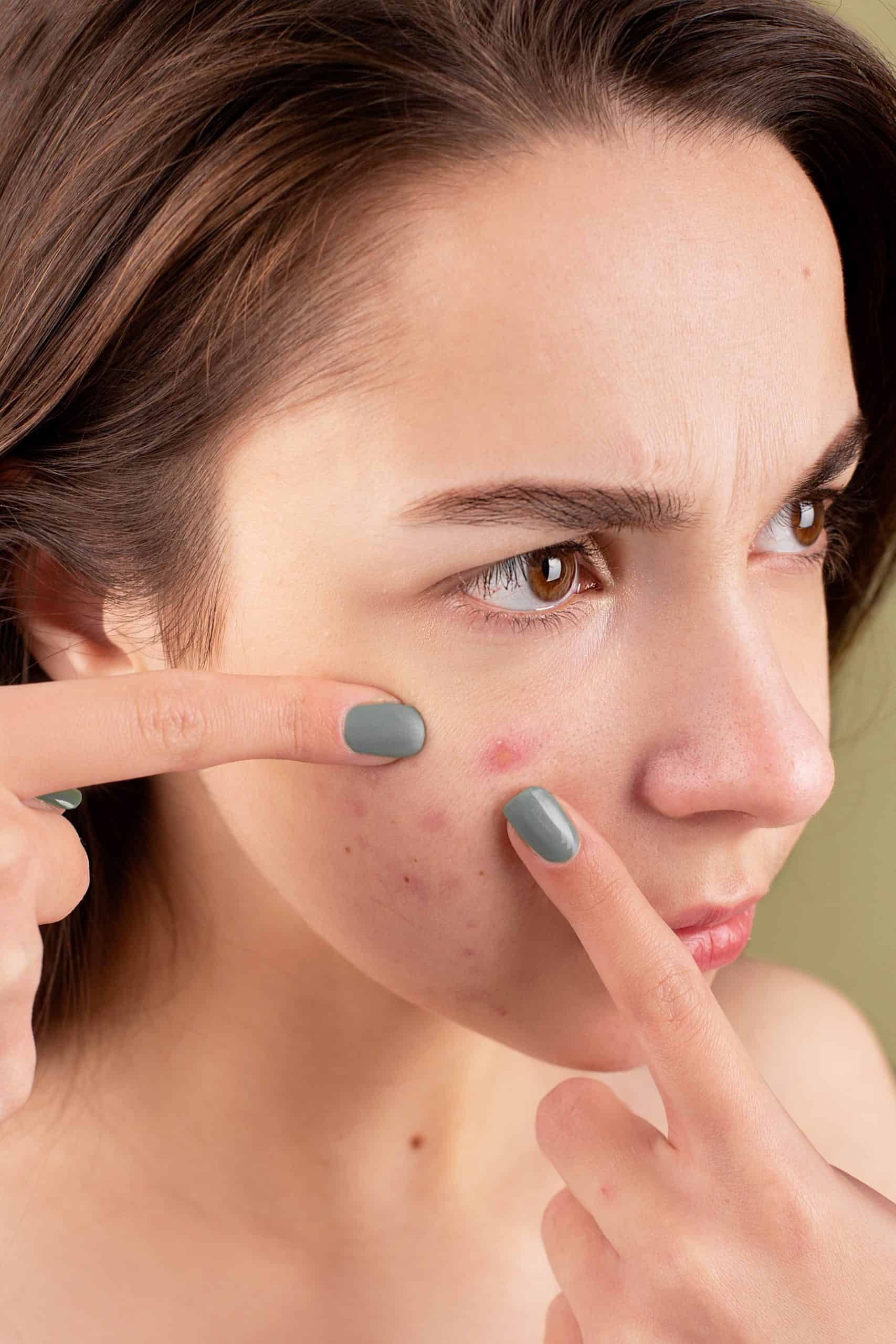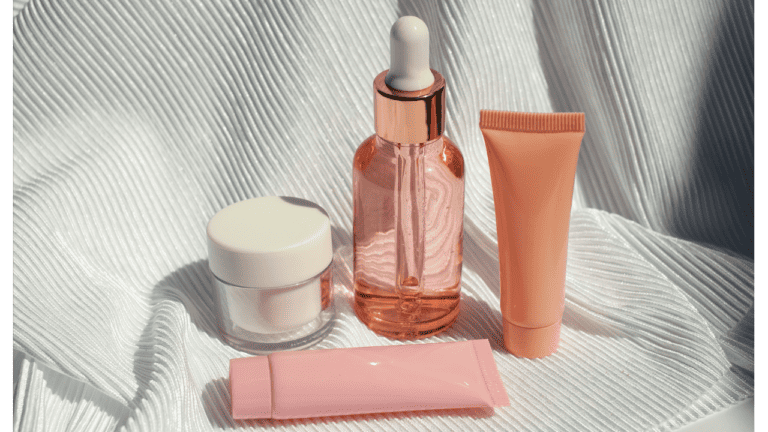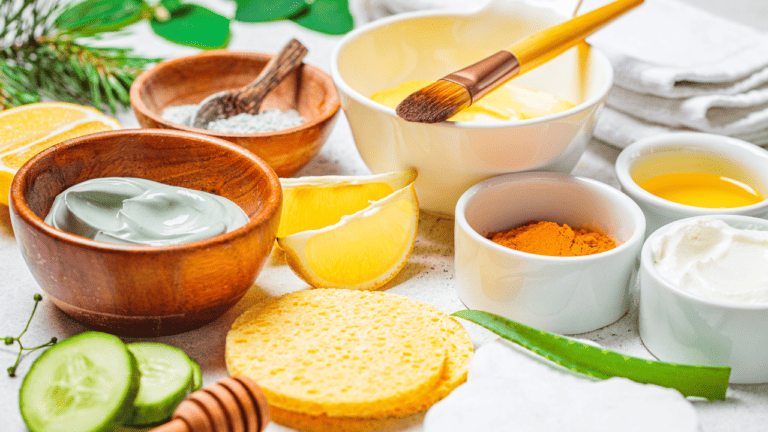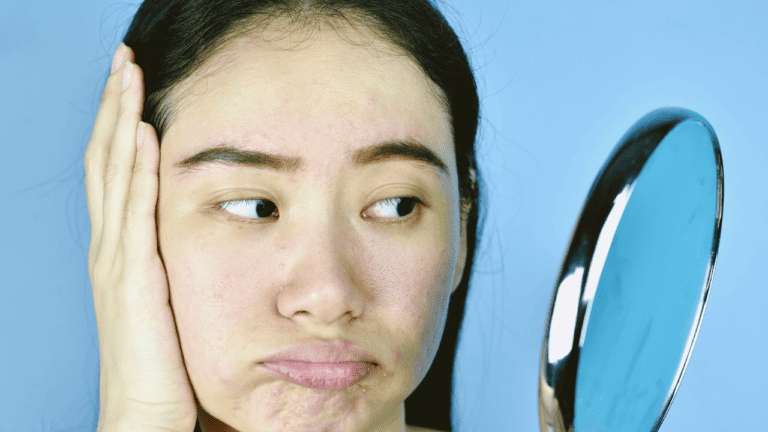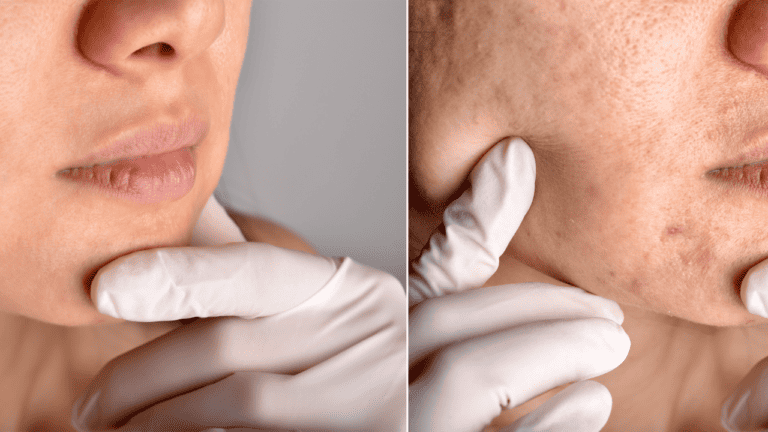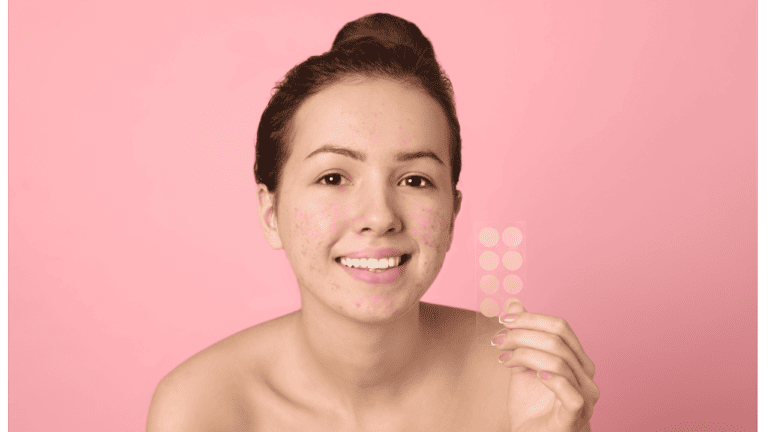Acne scars are one of the most common skin concerns faced by individuals all over the world, they affect our confidence and can be a source of frustration and embarrassment for those affected by them. Growing up with acne myself, I know the most common question I asked was, “How long will it take for my acne scars to fade?”
Well, after experiencing it firsthand, the answer to this question varies on a multitude of factors, let’s discover what these are, and the secrets to fading them faster, along with practical tips on prevention, treatment, and lifestyle choices for healthy, glowing skin.
How Long Does It Take Acne Scars To Fade?
The simple answer to this is that the most common acne scars, atrophic scars which are depressions in the skin, can take anywhere from 6 months to 2 years to fade, whilst less common hypertrophic scars raised scars, take up to 3 years or more. However, these scars could last longer and fade faster depending on the actions you take.
Factors that Influence the Time Needed for Acne Scars to Fade
1. Type of Acne Scarring
The type of acne scarring is an essential factor to consider as they are a massive factor in the time it takes for acne scars to fade. There are three types of acne scars – atrophic, hypertrophic, and keloidal scars. Atrophic scars are depressions in the skin, while hypertrophic scars are raised scars. Whilst most people experience atrophic scars, keloidal scars are the least common and the hardest to fade because they spread beyond the boundaries of the injury.
2. Severity of Acne
The severity of the acne that caused the scars can impact how long it takes for acne scars to fade. Severe acne typically causes more significant scarring that can take longer to heal. However, any kind of acne, mild or severe will cause scarring if picked at or popped.
3. Age of the Scars
The age of scars is another factor to consider as it impacts how long your acne scars could take to fade. If you take the time to treat new acne scars, they may fade faster than older scars that have not been treated because they are still in the process of healing and have not fully matured. Older scars would be more established in the skin and need more intense treatments than new scars to be removed.
4. Skin Type
Individuals with oily skin may find their scars take longer to fade as the excess oil can clog pores and hinder healing. Dry skin, on the other hand, can cause scarring to become noticeable.
How To Fade Acne Scars
Acne scars can be a real bummer, but there are natural remedies that can help fade them over time. Here are some tips on how to fade acne scars naturally:
1. Scrub Your Skin Gently
Exfoliating your skin regularly can help get rid of dead skin cells and promote skin cell renewal, which helps fade acne scars. You could use a gentle scrub or a chemical exfoliant like alpha hydroxy acids (AHAs). Just be careful not to overdo it, as too much exfoliation can irritate your skin.
2. Get Your Vitamin C Fix
Vitamin C is a powerful antioxidant that can help promote collagen production and reduce the appearance of acne scars. You could use it topically, with a Vitamin C serum, or add it to your diet. Some Vitamin C-rich foods are oranges, kiwis, strawberries, tomatoes, and broccoli.
3. Try Aloe Vera
Aloe vera is a natural anti-inflammatory that can help reduce redness and swelling associated with acne scars. You can apply aloe vera gel directly to your scars to achieve an immediate cooling effect or if you want you could use it in combination with other ingredients in a skincare product. I just love the way it feels super refreshing and cool on the skin.
4. Honey, Honey
Honey has antibacterial and anti-inflammatory properties that can help reduce the appearance of acne scars. Use it as a mask or mix it with other ingredients like turmeric or yogurt for added benefits. And if you’re like me, you might just want to eat it straight from the jar – it’s that good!
5. Don’t Skip Sunscreen
Exposing your skin to the sun’s harmful UV rays can make acne scars more noticeable. Also if you are currently experiencing acne, exposing your skin to UV rays could cause more breakouts and scarring so make sure to reach for your sunscreen before you leave the door!
Using a broad-spectrum sunscreen with an SPF of at least 30 will help protect your skin and prevent further damage. Plus, it’s a fantastic way to show off that summer glow without sacrificing your skin’s health.
6. Moisturize, Moisturize, Moisturize
Keeping your skin hydrated and moisturized is important to improve overall health and appearance. This is particularly important when a scar is fresh because increasing skin elasticity will help with scar healing. Also, dry skin is more prone to scarring, keep in mind, that scarred skin is already 20% weaker than normal healthy skin. When it is dry it could crack and tear more easily than moisturized skin, leading to further scarring down the road.
7. Take a Chill Pill
Stress takes a toll on our skin’s health, including the healing of acne scars because of hormones that our bodies release. Cortisol is released by our body when we feel stressed which delays the healing of acne scars. Finding ways to manage stress, like yoga, or going for a walk, can help promote healthy skin and reduce the appearance of scars. Setting aside some time for “me time” is always a good idea.
8. Get Moving With Exercise
Regular exercise can help improve blood flow and promote healthy skin cell renewal. Plus, it’s a great way to also reduce stress and boost your overall health! Try to incorporate a few minutes of exercise into your daily routine be it just 5 minutes a day or 30 minutes a day, go outside, talk away, and have some fresh air.
Final Notes, Stay Positive
So, there you have it, acne scars take time to fade but with patience and a consistent routine, you can see real results. We can always take a natural approach to fade acne scars that won’t break the bank or require a prescription. I know dealing with acne scars can be a struggle, but with a little patience and consistency, you can achieve healthy, glowing skin that you can be proud of. Remember to be kind to your skin, both inside and out, and don’t forget to treat yourself to a little self-care every now and then. You deserve it!
